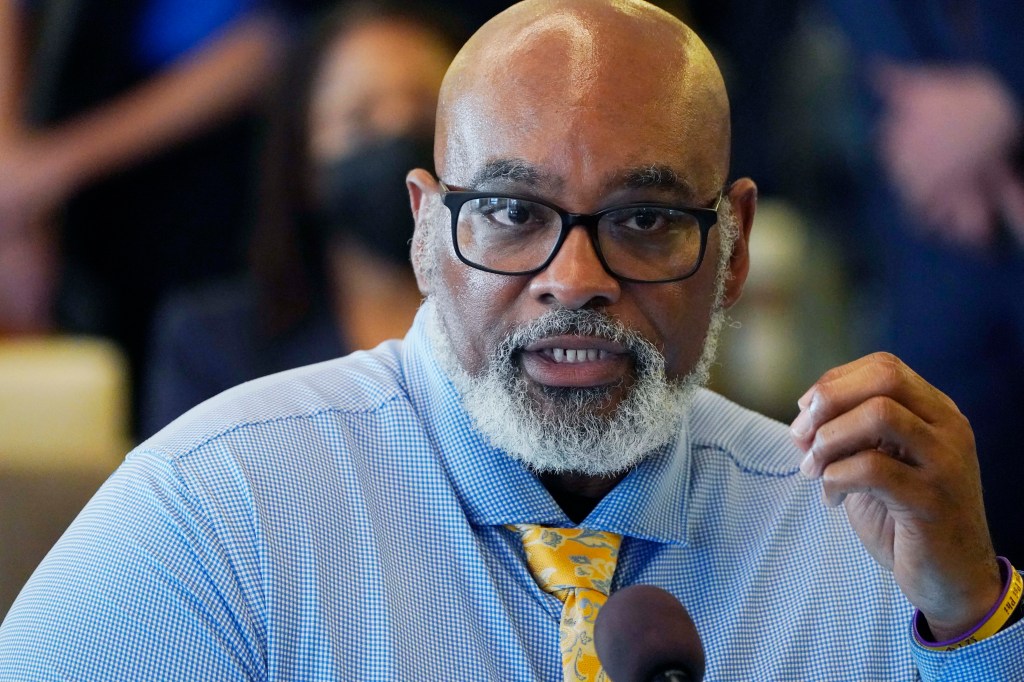Babies, especially Black infants, die too often in Mississippi. The state’s trying to change that.
Mississippi ranks worst for infant mortality, with Black infants nearly twice as likely as white ones to die over the […] The post Babies, especially Black infants, die too often in Mississippi. The state’s trying to change that. appeared first on TheGrio.

Mississippi ranks worst for infant mortality, with Black infants nearly twice as likely as white ones to die over the past decade
JACKSON, Miss. (AP) — Mississippi could allow Medicaid coverage earlier in pregnancy in an effort to improve health outcomes for mothers and babies in a poor state with the nation’s worst rate of infant mortality.
With wide bipartisan support, the state House passed a bill Wednesday to allow up to 60 days of “presumptive eligibility” for Medicaid, starting July 1. This means a pregnant woman’s outpatient medical care would be paid by Medicaid as her application for coverage by the government insurance program is being considered.

Processing Medicaid applications can take weeks, and physicians say early prenatal care is important.
House Medicaid Committee Chairwoman Missy McGee of Hattiesburg pointed out that Mississippi has high rates of fetal mortality, infant mortality and maternal mortality.
“I think this will go a long way in helping moms and babies be healthy … and give babies the best shot for a healthy life,” McGee said.
Mississippi ranks worst in the U.S. for infant mortality, with Black infants nearly twice as likely as white ones to die over the past decade, according to a report unveiled Jan. 18 by the state Department of Health.
Presumptive Medicaid eligibility during pregnancy would be based on questions about income, asked by health care providers such as employees of county health departments. If a woman’s Medicaid application is ultimately rejected because her income is too high, Medicaid would still pay health care providers for services they provided during the time of presumptive eligibility.
McGee said presumptive eligibility could cost the Medicaid program just under $600,000 a year.
Medicaid is funded by federal and state governments, with the federal government paying at least 50% of costs in all states and a higher share in poorer states. The federal government pays for nearly 77% of Medicaid expenses in Mississippi.

In Mississippi, Medicaid coverage for pregnant women 19 and older is based on income. A woman who is in that age category and has no dependents can earn up to about $29,000 and qualify for Medicaid during pregnancy. A pregnant woman in that age category who has three dependents can earn up to $59,700 and qualify.
Mississippi Medicaid coverage is available to all income levels for those who are pregnant and younger than 19.
Democratic Rep. John Hines Sr. of Greenville said earlier eligibility for Medicaid coverage during pregnancy could help the state in recruiting OB-GYNs.
“Where we are right now is that we are last in everything,” Hines said. “This is a step toward making Mississippi a better place.”
The bill passed the House 117-5. It moves to the Senate for more work in coming weeks. Republicans control both chambers.
Recommended Stories
About 41% of births in the U.S. and 57% in Mississippi were financed by Medicaid in 2022, according to the health policy research group KFF. Only Louisiana had a larger share of births covered by Medicaid that year, at 61%.
In 2023, Mississippi extended postpartum Medicaid coverage from two months to a full year, with Republican Gov. Tate Reeves saying the change was part of a “new pro-life agenda” to help mothers in a state where abortion is tightly restricted.
Never miss a beat: Get our daily stories straight to your inbox with theGrio’s newsletter.
The post Babies, especially Black infants, die too often in Mississippi. The state’s trying to change that. appeared first on TheGrio.




















